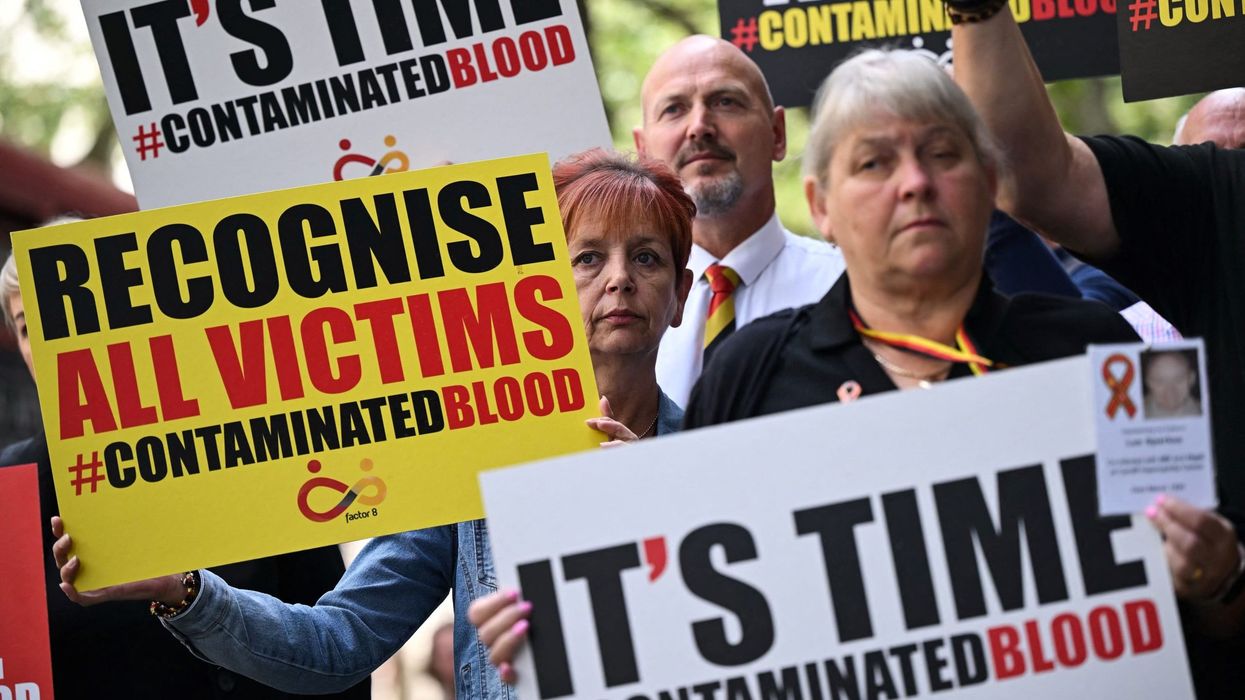The infected blood inquiry report cites failures in communication and risk management in blood transfusions
The final report of the Infected Blood Inquiry has been published today, bringing to light a devastating chapter in the history of the UK's healthcare system.
The inquiry, which was launched by former Prime Minister Theresa May in 2017, examined how contaminated blood products infected over 30,000 NHS patients with deadly viruses, including HIV and Hepatitis C, between the 1970s and 1990s.
Following the publication of the report, Prime Minister Rishi Sunak issued a formal apology on behalf of successive governments, acknowledging the state's significant failings.
He stated that he finds it "impossible to comprehend" how victims felt when injected with deadly diseases through no fault of their own.
"Many of those infected went on to develop horrific conditions such as TB [and] AIDS" and had to endure debilitating treatments for "illnesses the NHS had given them," Sunak said.
He condemned the "appalling" treatment victims received and sympathised for the social vilification many faced.
"We will study every single one of the inquiry’s recommendations in detail and work urgently across government and public organisations to ensure nothing like this can ever happen again," the PM added.
Amanda Pritchard, Chief Executive of NHS England, also extended "deepest and heartfelt apology" on behalf of the NHS.
"Tens of thousands of people put their trust in the care they received from the NHS over many years, and they were badly let down," she said.
The inquiry, led by Sir Brian Langstaff, revealed systemic failures across various levels of the healthcare system and government.
It highlighted the lack of effective communication, investigation, and mitigation of risks associated with blood transfusions and treatments.
The report condemned the collective lack of openness and willingness to listen, which denied patients and families the answers and support they desperately needed.
The infected blood scandal "was not an accident".
Sir Brian stated: "In families across the UK, people were treated by the NHS and over 30,000 were given infections which were life-shattering.
He continued, "This disaster was not an accident."
"The infections happened because those in authority – doctors, the blood services and successive governments – did not put patient safety first."
He concluded, "The Government is right to accept that compensation must be paid.
Theresa May, speaking in the Commons, emphasised the betrayal felt by the public due to the actions of medical professionals, civil servants, and politicians who prioritised their reputations over public safety.
"Sir Brian has highlighted what is a devastating and abject failure of the British state," she remarked.
Former Health Secretary Sir Sajid Javid called the scandal the "biggest in the history of the NHS" and questioned the Prime Minister on the steps being taken to ensure accountability and prevent future occurrences.
Labour MP Dame Diana Johnson, a long-time campaigner on the issue, expressed relief at the acknowledgment of the victims' suffering but criticised the delay in providing compensation.
"It’s a vindication of nearly 50 years of campaigning for justice," she said.
UK modern blood supply among the safest globally
In response, the NHS is collaborating with the DHSC to establish a psychological support service for those affected, set to commence later this summer.
Pritchard reassured the public that modern safety standards ensure the current blood supply is among the safest in the world.
Stephen Flynn, SNP Westminster leader, also expressed sorrow and gratitude to the victims for their relentless pursuit of justice at the parliament.
"This scandal represents the very worst of Westminster," he declared, vowing to ensure the implementation of the inquiry’s recommendations and swift compensation for the victims.












